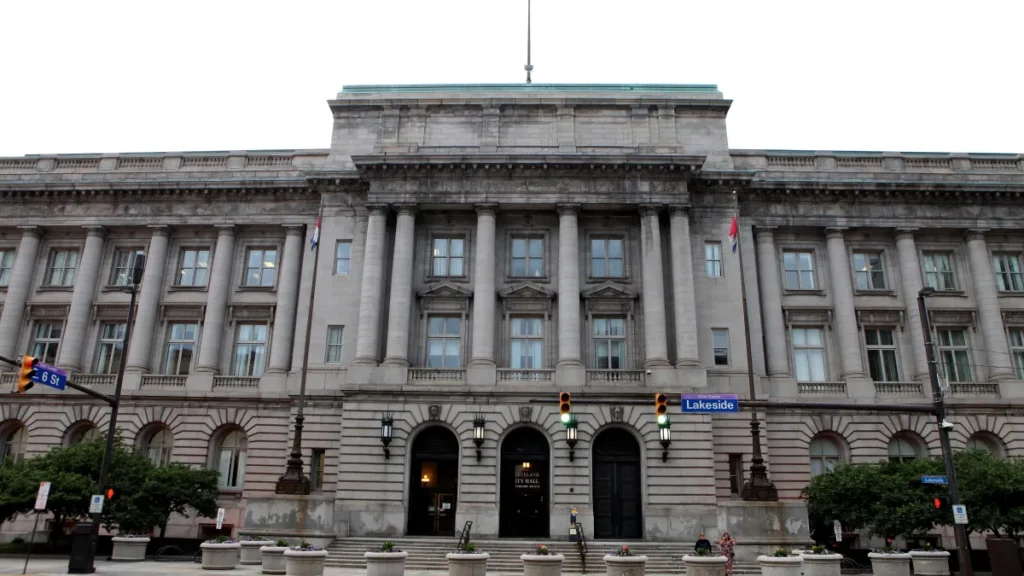Cleveland’s City Hall has remained closed to the public following a ransomware attack that disrupted operations starting last Sunday. The attack, targeting Ohio’s second-largest city, has caused significant disruptions throughout the week as officials work to contain and recover from its effects.
According to a spokeswoman for Mayor Justin Bibb, the ransomware has been contained as of Friday. However, details about whether the city plans to negotiate or pay the ransom have not been disclosed due to the ongoing investigation involving state and federal authorities. This secrecy is necessary to protect the integrity of the investigation and potential negotiations.
Initially, in response to the attack, City Hall and another government facility were swiftly closed, and most systems were taken offline to prevent further damage. Efforts were made to resume operations by mid-week, but encountered complications. Delays and issues arose in critical city services such as processing building permits and birth and death certificates, highlighting the vulnerabilities exposed by such cyber incidents.
Mayor Bibb’s administration reported some progress upon attempting to resume operations. However, significant challenges persisted in fully restoring functionality. As a result, City Hall was closed again to the public, with officials extending the closure through at least Monday. The duration of the closure beyond Monday remains uncertain, despite city employees having returned to work.
Residents of Cleveland seeking city services have been redirected to neighboring municipalities like Parma and Lakewood, with some online services remaining operational. This temporary redirection aims to minimize disruptions for residents while Cleveland works to restore full service capabilities and ensure ongoing municipal functions.
The ransomware attack on Cleveland echoes similar incidents experienced by other municipalities, including Akron in 2019. Such attacks underscore the vulnerabilities faced by local governments in safeguarding their digital infrastructures against sophisticated cyber threats.
Moving forward, Cleveland’s response to this cyber incident will likely prompt a reassessment of cybersecurity protocols and emergency preparedness measures. The incident serves as a stark reminder of the critical importance of investing in robust cybersecurity defenses to protect public services and infrastructure from future threats.
The closure of City Hall and disruptions in services have not only inconvenienced residents but also highlighted broader implications for municipal governance and public trust. The incident prompts questions about the resilience of local government operations in the face of evolving cyber threats and the need for proactive measures to mitigate risks.
As Cleveland continues its efforts to recover and resume normal operations, attention remains focused on addressing immediate challenges while implementing long-term strategies to enhance cybersecurity resilience. This incident will likely inform discussions and actions aimed at fortifying municipal cybersecurity frameworks to better protect against, detect, and respond to cyber threats in the future.
The ransomware attack on Cleveland’s City Hall has underscored vulnerabilities in municipal cybersecurity and prompted efforts to mitigate disruptions, restore services, and enhance preparedness against future cyber threats. The incident serves as a crucial learning opportunity for local governments nationwide to strengthen their cybersecurity defenses and ensure the continuity of essential public services in an increasingly digital age.
If you like the article please follow on THE UBJ.
